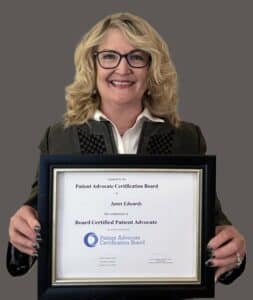In 2021, when diagnosed with invasive lobular carcinoma (ILC), I was suddenly thrust into the world of an understudied and misunderstood form of breast cancer with a treatment protocol based on the more common invasive ductal carcinoma (IDC), which is a very different disease.
To ensure I could make educated decisions about my treatment protocol, I embarked upon an extensive online research exercise, which is how I found LBCA. After my initial treatment was completed, I began volunteering with various organizations, including LBCA, UT Southwestern’s Research Advocacy Program (RAP) and Susan G Komen – Advocates in Science to advance awareness and research of ILC.
Over the last few years, the opportunity to interact with other breast cancer patients and their caregivers emerged. When asked, “What type of breast cancer is it?” Their most common answer was, “I don’t know.” (This was and continues to be disturbing because understanding the diagnosis is critical to achieving patient-centered healthcare). The more I learned, the more I wanted a more personal role directly with breast cancer patients, especially lobular breast cancer patients.
As an ILC survivor, I understand the initial emotional devastation, anxiety, fear of the unknown next steps, treatment options, etc. As a research patient advocate, I’ve learned about current scientific research, new approaches to diagnosis and treatment, clinical trials, and grants. This led to a passion to become a resource directly for patients, too. That’s when I discovered the Patient Advocate Certification Board and the Board-Certified Patient Advocate (BCPA) credential.
BCPA is the only nationally recognized credential for patient advocacy. There are roughly 2200 of us nationwide. The focus of a BCPA is to be a resource directly for patients.
BCPAs are hired and paid for by patients with complex diseases, including cancer. A BCPA assists clients in understanding their diagnoses and choices of treatments and the potential impact of those decisions personally and financially. They might help clients create a list of questions for their doctors or to help them to use an existing one like, Questions for Your doctor provided by LBCA, or accompany the client to doctor’s appointments. They might read and assist clients with understanding medical bills and insurance coverage. They do not give medical or financial advice. They work to ensure their clients’ voices are heard and that they receive patient-centered care driven by their own educated decisions. A BCPA can provide services virtually to anyone in the country or meet clients at a private location if that is more convenient.
My training as a cancer research advocate enabled me to pass the BCPA exam. My experience as an ILC survivor gives me the compassion and drive to help others. I am looking forward to finding new opportunities to contribute to both research and patient advocacy with this certification.
– Janet Edwards, BS, BCPA


